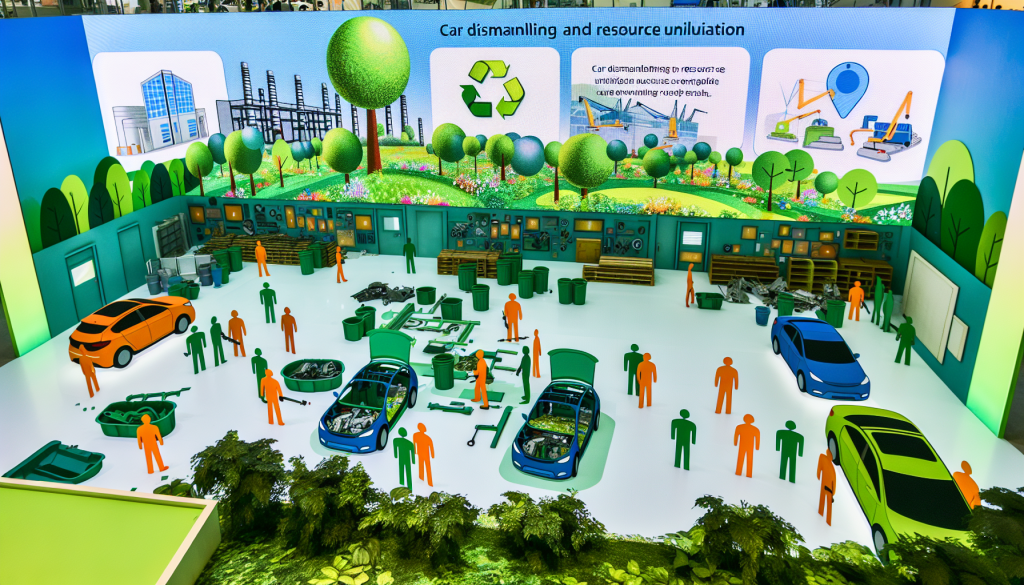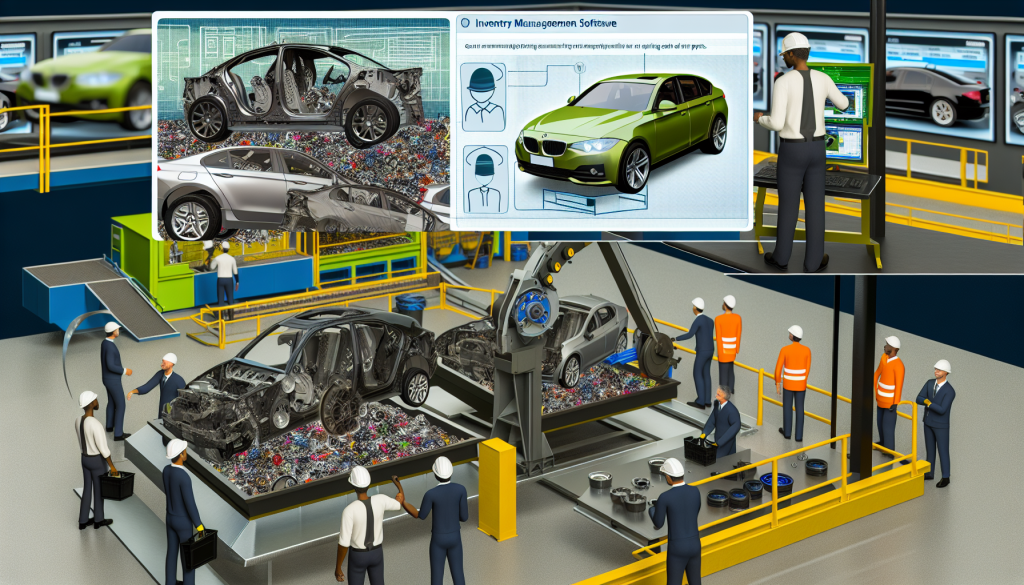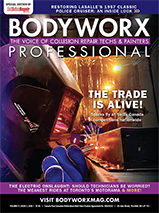Green Innovations: Transforming Auto Recycling for a Sustainable Future

In an era where sustainability is not just a choice but a necessity, the auto recycling industry is undergoing a revolutionary transformation. Green innovations are leading the way in reshaping how vehicles are recycled, prioritizing environmental responsibility while still bolstering the economy. Let’s delve into how these cutting-edge practices are setting new standards for a sustainable future in auto recycling.
The journey begins with the realization that automobiles are treasure troves of recyclable materials. From metals like steel and aluminum to plastics, glass, and even fluids, nearly every component of a decommissioned vehicle can embark on a new life if processed correctly. Innovations in dismantling technology are making it possible to achieve this with unprecedented precision and efficiency.
Advanced dismantling techniques are at the forefront of this transformation. Traditionally, the process of breaking down a car for parts and materials was labor-intensive and not always environmentally friendly. Today, robotic dismantling systems are changing the game. These systems can carefully and quickly disassemble vehicles, recovering parts for reuse and materials for recycling without unnecessary waste or environmental harm.
Beyond the dismantling process, green innovations are also making waves in how recycled materials are utilized. Recycled metals from cars are finding new life in various industries, from construction to consumer goods. This not only reduces the demand for virgin materials but also significantly lessens the environmental impact associated with mining and processing.
Plastic recycling from vehicles is another area where innovation is key. With auto manufacturers increasing the use of plastics to lighten vehicles and improve fuel efficiency, the need for effective recycling strategies has never been greater. Through advancements in sorting and processing technologies, plastics from old cars are being repurposed into high-quality materials for making new vehicle parts and other products.
Fluid recovery and recycling is another critical aspect of green auto recycling. Innovations in fluid extraction and processing ensure that oils, coolants, and other liquids are not just removed safely but also treated and reused, minimizing pollution and conserving resources.
The integration of green technologies in auto recycling extends into how recycled parts are catalogued and sold. Modern inventory management systems powered by artificial intelligence (AI) and blockchain technology provide a transparent and efficient marketplace for recycled auto parts. This not only facilitates the reuse of components but also helps in reducing the carbon footprint associated with manufacturing new parts.
However, the journey towards a sustainable future in auto recycling doesn’t stop at technological innovation. It also requires a collaborative effort involving policymakers, industry stakeholders, and consumers. Regulations and incentives that encourage the recycling of vehicles and the use of recycled materials are essential. Equally important is raising public awareness about the benefits of choosing recycled parts and supporting green auto recycling practices.
In conclusion, the intersection of innovation and responsibility is driving the auto recycling industry towards a greener and more sustainable future. By embracing advanced technologies and fostering a culture of environmental stewardship, we can ensure that the end of the road for a vehicle marks the beginning of a new, environmentally friendly life for its materials. The transformation of auto recycling is not just about safeguarding our planet today—it’s about securing a healthier, more sustainable world for future generations.
Revolutionizing Recycling: Insight into Canada’s Innovative Auto Recycling Revolution

Canada’s Auto Recycling Revolution: Pioneering Sustainable Practices
Canada is leading a transformative revolution in auto recycling that is reshaping the way we view and manage automotive waste. In a time when environmental awareness is on the rise and the urgency to reduce pollution and conserve resources is paramount, Canada’s innovative approach to auto recycling shines brightly as a beacon of progress. This post explores the core of Canada’s auto recycling revolution, highlighting the industry’s innovative practices, remarkable benefits, and significant impacts.
At its essence, Canadian auto recycling goes beyond mere dismantling of old cars and selling parts. It embodies a sophisticated process that involves recovering and reusing valuable materials, responsibly disposing of hazardous components, and staunchly committing to reducing the environmental impact of automotive waste. This industry has evolved into a well-organized, efficient, and environmentally beneficial sector, presenting a sustainable operational model that is beginning to influence other nations.
Innovative Practices Setting the Industry Apart
The Canadian auto recycling industry stands out for its embrace of various innovative practices that distinguish it. Advanced technology plays a pivotal role, with many recyclers employing sophisticated software to manage inventory, optimize operations, and boost parts recovery efficiency. This technology also opens up a global marketplace, enabling parts and materials to find new applications far beyond their initial uses.
Furthermore, Canadian auto recyclers lead in the eco-friendly management of vehicle fluids and hazardous materials. These substances are meticulously handled and processed to prevent soil and water contamination. The industry partners closely with manufacturers and stakeholders to enhance vehicle design for ease of disassembly and recycling, driving the adoption of more sustainable manufacturing practices in the automotive sector.
Clear and Compelling Benefits
Canada’s auto recycling approach yields both environmental and economic advantages. Environmentally, it substantially reduces the industry’s carbon footprint by conserving resources and curbing energy consumption needed for producing new materials. Recycling metals from vehicles requires notably less energy than generating them from ore, resulting in reduced greenhouse gas emissions.
Economically, the auto recycling sector significantly contributes to Canada’s economy, creating numerous jobs and generating substantial revenue. By offering affordable, quality recycled parts to the market, it helps lower vehicle repair costs for consumers, making vehicle maintenance more accessible and extending the lifespan of existing vehicles.
A Sustainable Development Model
Canada’s auto recycling revolution exemplifies sustainable development by showcasing how environmental stewardship and economic prosperity can harmonize to drive industry growth. The interconnected benefits of environmental preservation, resource conservation, and economic well-being underscore the importance of incorporating sustainability as a central tenet of industry advancement.
Looking ahead, the Canadian auto recycling industry is positioned to assume an even more pivotal role in the circular economy. As the world transitions towards electric vehicles and new mobility solutions, the industry’s innovative practices and sustainability values will be crucial in addressing the new challenges posed by these changes. Whether it involves managing the intricate recycling demands of electric vehicle batteries or finding fresh applications for conventional automotive materials, Canada’s auto recyclers are prepared to lead the charge.
In closing, Canada’s groundbreaking auto recycling revolution transcends mere waste reimagining; it is boldly pioneering a future where every facet of a vehicle’s life cycle contributes to a more sustainable world. Through cutting-edge practices, substantial environmental and economic benefits, and a forward-thinking mindset, Canadian auto recyclers are setting a benchmark for an industry at the intersection of technology, sustainability, and economic advancement. As this revolution unfolds, it offers a potent illustration of how innovation and environmental responsibility can steer positive change, thereby making a substantial impact on our world.










